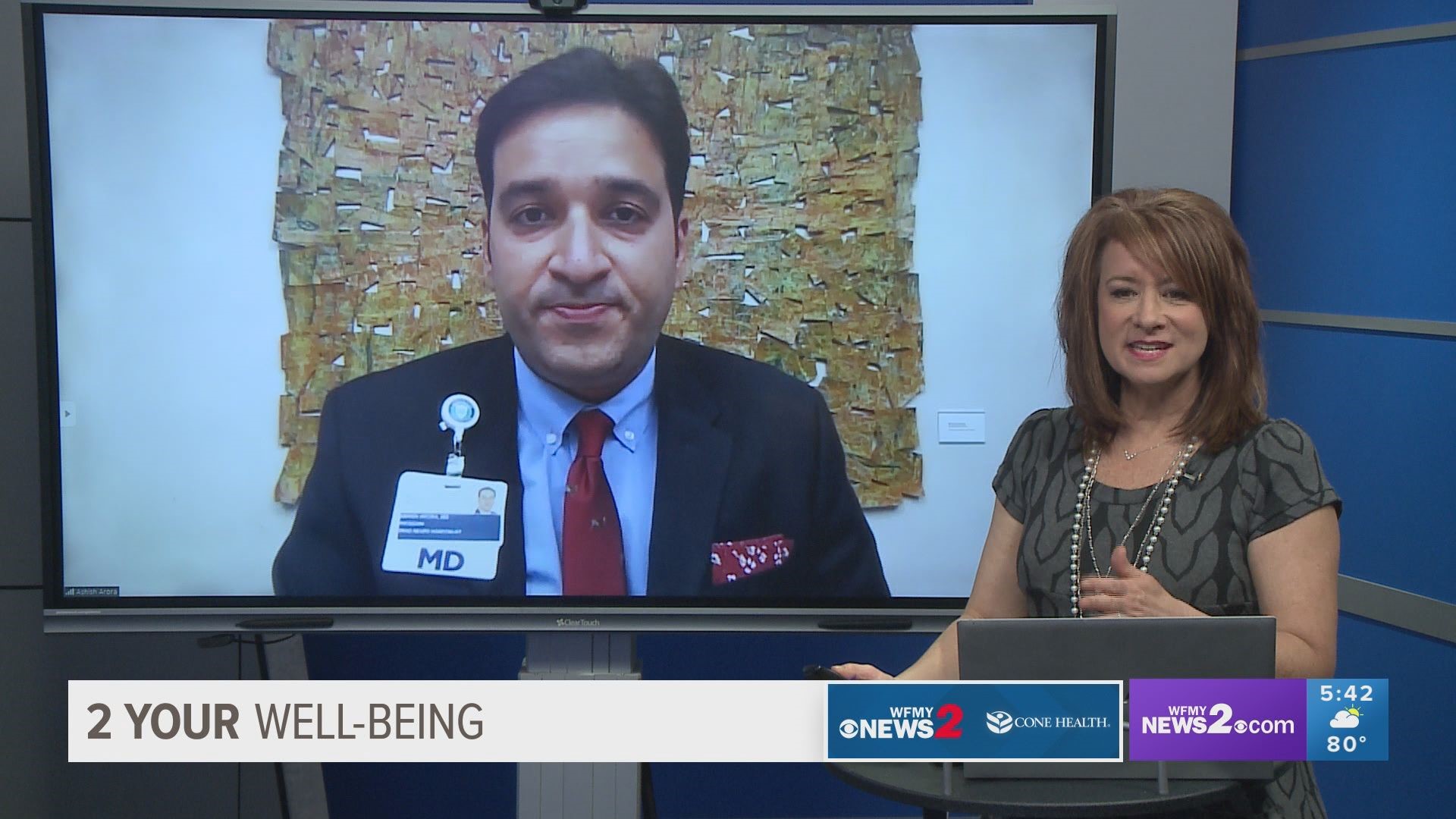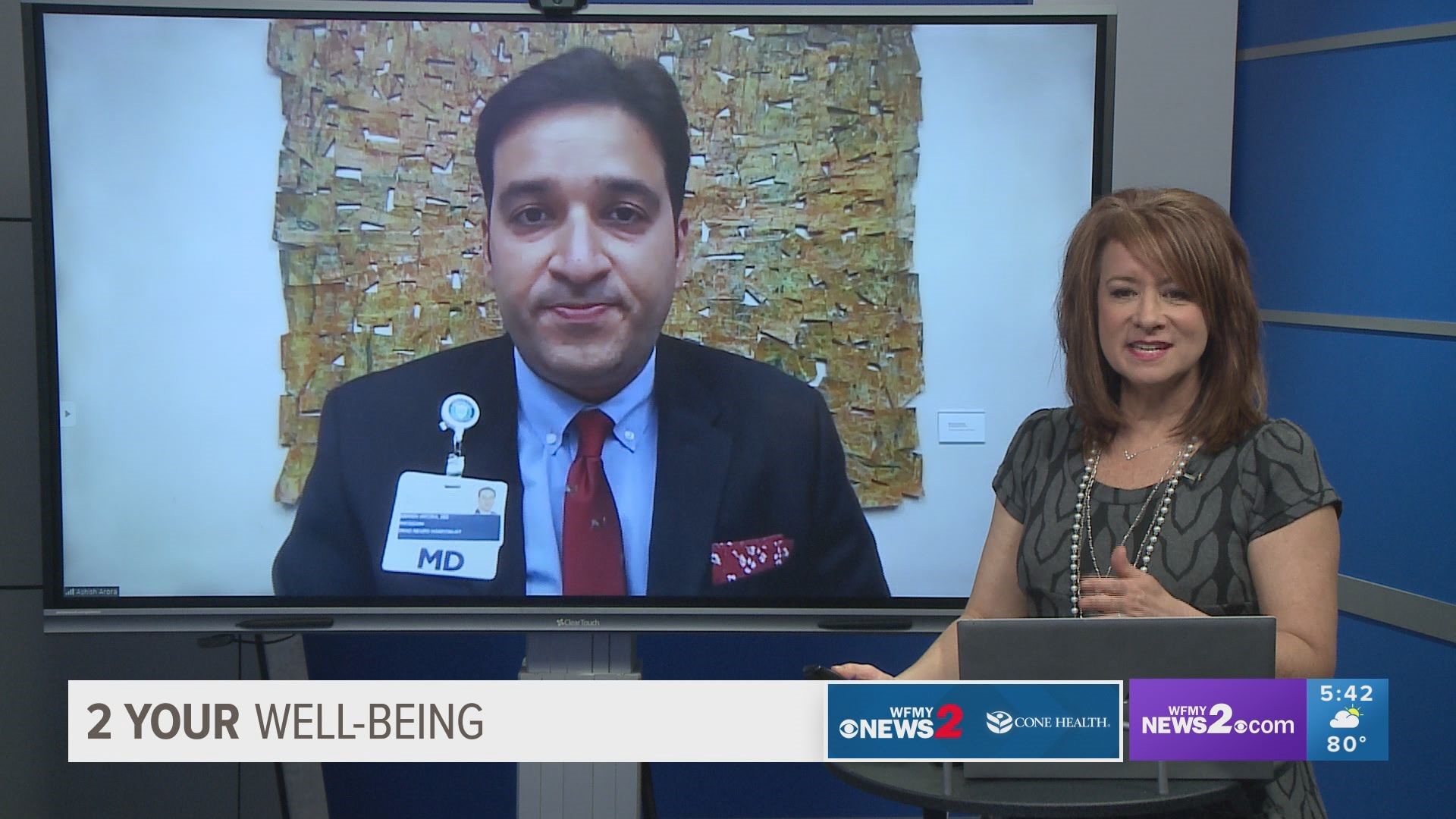GREENSBORO, N.C. — According to the CDC, someone in the United States has a stroke every 40 seconds, and someone dies from one every 3.5 minutes.
In this 2 Your Well-Being, we talk with Cone Health's Dr. Ashish Arora to review what everyone should do. He said it could save your life or that of someone you love.
Arora said a common misconception is that strokes only impact older people. He said strokes can happen to "anyone, at any age group, at any time."
Arora said people can't control their genetics, so it's important they take control of the things they can change to help prevent strokes. He said people should avoid smoking, exercise regularly and control high blood pressure.
COVID-19 can cause blood clots, which makes strokes more likely. Arora said getting vaccinated if you're high-risk is wise to help reduce your risk of complications.
Since strokes can impact anyone, Arora shared a mnemonic that we can all remember to know the warning signs. He said he wants people to know BE FAST.
- B stands for balance. Sudden imbalance or dizziness could be a sign of something more serious.
- E is for eyes. People having a stroke may have issues controlling where their eyes go.
- F stands for face. Arora said people having a stroke may experience weaknesses in the face. The face may also droop on one side.
- A is for arms. If you think someone is having a stroke, Arora said have them stretch their arms forward. If they can't keep one side up, get medical help immediately.
- S stands for speech. People experiencing a stroke may suddenly have slurred or incoherent speech.
- T is for time to call 911. Arora said if someone is experiencing any of these symptoms, someone needs to call for help immediately.
Arora said you shouldn't drive someone to the hospital if you think they're having a stroke. He said someone loses 30,000 brain cells for every second the brain isn't getting enough blood supply. Someone's brain could age several decades if they don't get care quickly enough.
Arora said to call 911 to get the quickest response time, so the person experiencing stroke-like symptoms can help.


